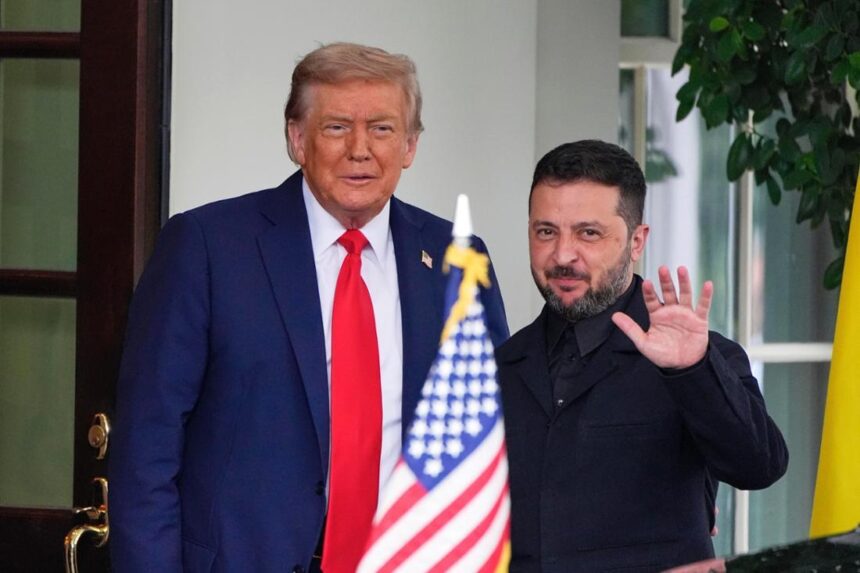In a move that has sparked controversy and debate, former President Donald Trump recently announced his intent to add San Francisco to a list of cities where he proposes to deploy federal troops in response to rising crime rates and public safety concerns. This announcement, made during a campaign rally, has reignited discussions about law enforcement, federal intervention, and the complexities of urban governance. As cities across the nation grapple with issues of crime and public safety, Trump’s proposal raises questions about the implications of military presence in civilian areas and the political motivations behind such decisions. San Francisco, known for its progressive policies, now finds itself at the center of a heated national discourse on law and order.
Trump’s Controversial Proposal to Deploy Troops in San Francisco Raises Concerns
In a shocking turn of events, the former president has proposed deploying federal troops to combat rising crime rates in San Francisco, a move that has ignited significant debate among lawmakers and local residents. Advocates for the proposal argue that the increased presence of military personnel could lead to a swift decline in criminal activities, which have reportedly surged in certain neighborhoods. They believe that such a measure could be crucial in restoring law and order, citing instances of violent crime and public disorder that have plagued the city in recent years.
However, opponents of the plan are raising serious concerns about the implications of militarizing urban spaces. Critics warn that this proposal could lead to a deterioration of community trust in law enforcement and further escalate tensions between residents and authorities. They emphasize the importance of focusing on social programs and resources to address the root causes of crime rather than deploying troops. The discussions have prompted an array of responses, including:
- Local officials expressing disbelief at the proposal’s feasibility.
- Activists organizing protests to oppose military intervention.
- Concerns over potential civil liberties violations and community safety.
| Supporters’ Arguments | Opponents’ Concerns |
|---|---|
| Reduction in crime rates | Loss of community trust |
| Enhanced public safety | Escalation of tensions |
| Deterrent effect on criminals | Risk of civil rights violations |
Local Leaders and Residents React to Potential Military Presence in City
The announcement of a potential military presence in San Francisco has sparked a wave of reactions from local leaders and residents alike. Mayor London Breed expressed her vehement opposition, stating that “the use of military force is not the answer to our city’s challenges.” Many community organizations echoed her sentiment, highlighting concerns over civil liberties and the potential for increased tensions in neighborhoods already grappling with issues such as homelessness and crime. Community activist groups plan to hold public forums to discuss the implications of such a decision, emphasizing the importance of dialogue over militarization.
On the other side of the debate, some former military personnel and business leaders argue that a visible military presence may deter crime and provide support for local law enforcement. Local business owner James Nguyen remarked, “If it means a safer environment for my customers, I can see the benefits.” Meanwhile, a survey taken by a local news outlet revealed mixed feelings among residents regarding the administration’s proposal, with respondents noting:
| Opinion | Percentage |
|---|---|
| Support Military Presence | 35% |
| Oppose Military Presence | 50% |
| Undecided | 15% |
Assessing the Legal and Societal Implications of Troop Deployment in Urban Areas
The recent proposal to deploy troops in urban areas like San Francisco raises significant legal and societal concerns that merit urgent attention. The deployment of military personnel within city limits often invites a complex interplay of local, state, and federal laws. Legal frameworks surrounding such actions are not only rooted in constitutional rights but also hinge on statutes governing the use of military force on domestic soil. Activists and legal experts warn that the introduction of troops could infringe on civil liberties and create a precedent that may normalize military presence in civilian contexts. As these discussions unfold, the implications on public safety, civil rights, and community-police relations come to the forefront.
Moreover, the societal ramifications of deploying troops in cities like San Francisco trigger widespread debates about community trust and the militarization of law enforcement. Concerns include:
- Increased tension between residents and military personnel
- Potential escalation of violence rather than resolution
- Impact on vulnerable communities disproportionately affected by military presence
A shift towards a military approach to urban issues could further strain relations between the community and law enforcement agencies, complicating efforts to address underlying social problems. As stakeholders weigh the proposed measures, it becomes essential to balance national security interests with the fundamental rights and freedoms of citizens residing in these urban areas.
Concluding Remarks
In conclusion, President Trump’s decision to add San Francisco to his list of cities where he seeks to deploy federal troops has sparked a renewed debate about public safety, federal intervention, and local governance. As the city grapples with ongoing challenges related to crime and homelessness, the implications of this move remain profound. Local officials and residents have expressed varied responses, from support for increased resources to firm opposition against federal overreach. As tensions rise, the repercussions of this potential military presence in urban areas will likely continue to unfold in the coming weeks and months. The San Francisco Chronicle will continue to provide updates on this developing story as city leaders and community members respond to this controversial proposal.









